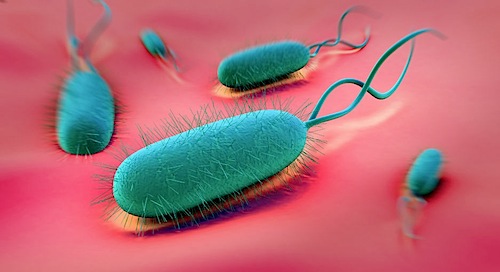April 15th 2015
By: Sayer Ji, Founder

H. pylori infection is often treated with three drugs simultaneously, but not
everyone responds favorably. Thankfully there are clinically confirmed natural,
food-based alternatives.
Helicobacter pylori (H. pylori) is a bacteria estimated to be found in the body of two-thirds of the world's population naturally, and usually does not cause symptoms. But in some cases it can be found as a contributing factor in ulcers, and may even drive some forms of gastric cancer. Modern treatment for H. pylori infection focuses on total eradication using so-called "triple therapy," which includes two antibiotics and an acid-blocker. Treatment of this kind, however, often results in antibiotic-associated imbalances in the gut flora, as well as driving antibiotic-resistant strains of H. pylori which can cause more serious forms of recurrence. This is one reason why there is growing interest in natural alternatives to drug-based treatment, and why we are excited to highlight some of the more compelling research out there on 'natural cures' to this common problem.
Here are three clinically tested solutions that may work in tandem, or as a complete alternative to conventional treatment:
1.
Broccoli Sprouts: A study published in Digestive Diseases and Sciences in 2004 titled, "Oral broccoli sprouts for the treatment of Helicobacter pylori infection: a preliminary report" , found that seven of nine patients (78%) who consumed broccoli sprouts (14, 28, or 56 g) twice daily for 7 days were stool antigen negative for H. pylori infection immediately after the completion of therapy and six remained negative at day 35. Broccoli sprouts contain extremely high levels of the sulfur-containing biomolecule sulforaphane which we have identified research on mitigating over 150 different diseases.
2.
Probiotics: A 2012 study published in Inflammation and Allergy Drug Targets titled, "Probiotic multistrain treatment may eradicate Helicobacter pylori from the stomach of dyspeptics: a placebo-controlled pilot study", found that a 10-day treatment with a multi-strain probiotic in patients with H. pylori associated dyspepsia resulted in 13 of the 40 patients experiencing complete eradication. (Note: The patients received 1.8 trillion alive of the following strains: Streptococcus thermophilus, Lactobacillus acidophilus, Bifidobacterium longum, Lactobacillus plantarum, Bifidobacteriuym brevis, Lactobacillus paracasei, Bifidobacterium infantis, Lactobaccilus delbrueckii bulgaricus subspecies). Probiotics fight infection naturally. For additional information consult our research page on probiotics which includes research on its value in over 200 conditions, many of which are infection-related.
3.
Black Seed (Nigella Sativa): A 2010 study published in the Saudi Journal of Gastroenterology titled, "Comparative study of Nigella Sativa and triple therapy in eradication of Helicobacter Pylori in patients with non-ulcer dyspepsia ", found that a dose of only 2 grams of black seed (Nigella Sativa) in combination with an acid blocker was about as effective (67%) as triple therapy (which includes an acid blocker, and two antibiotics) in treating H. pylori infection. Black seed has been studied to have value in a wide range of conditions. Consult our black seed database page for more information.
In addition to these solutions, please consult our growing Helicobacter pylori research page which includes over 50 studied natural, evidence-based interventions, including possible problem substances such as aspirin which may cause underlying damage to the mucosal lining of the digestive tract, producing conditions that lead to the opportunistic overgrowth of "bad" bacteria such as H. pylori.
Also, you can learn more by reading a really wonderful 2014 review published in the World Journal of Gastroenterology titled, "Exploring alternative treatments for Helicobacter pylori infection" , looked at over 300 studies published between 1991 and 2013 which covered plant-based anti-H. pylori activity from around the world, highlighting garlic, licorice , broccoli, green tea, probiotics and the bee products honey and propolis.
Lastly, for additional information on the increasing rise of antibiotic resistant bacteria, and alternatives to conventional treatment suggested by the growing evidence base, consult the following articles:






Leave a comment